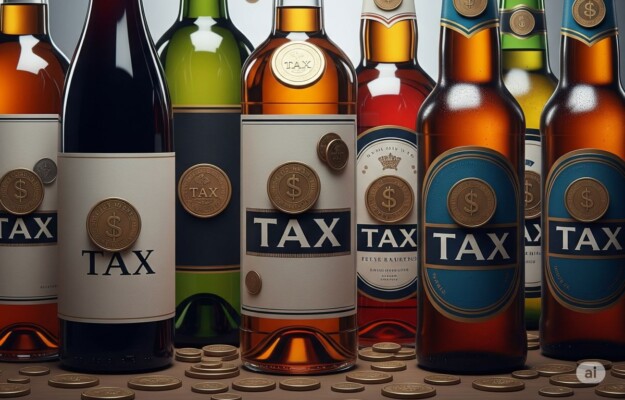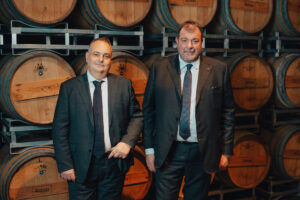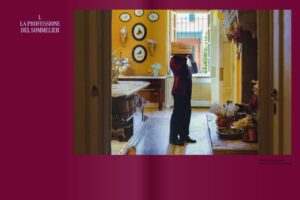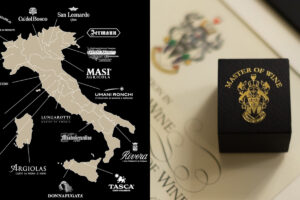If Us duties were really raised to 30% on Eu products starting August 1, 2025, including wine, they would have a severe impact on wines from the Old Continent and, more broadly, on global economies further depressing consumption of many goods, especially discretionary ones like wine, which has become a luxury item over the past 50 years. However, the tariff issue is dominating headlines and overshadowing two other major, long-term challenges for the wine industry and beyond. One is climate change, which can be managed or at least mitigated through interventions in vineyards, wineries, and research. The second is political: the growing wave of health-driven anti-alcohol sentiment, which is gaining momentum by capitalizing on the sector’s current fragility and the broader framework of uncertainty. And, in this way, already in early July, the World Health Organization returned to the fray by launching the “3 by 35” initiative, which is more than just a recommendation, it urges countries worldwide to raise consumer prices of alcohol, tobacco, and sugary drinks by 50% by 2035, “ through health taxes in a move aiming to curbing chronic diseases and generating fundamental public revenue. Initiative “3 by 35” comes at a time when healthcare systems are under immense pressure due to the rise in non-communicable diseases (Ncds), declining development aid, and growing public debt”, explains the WHO. Which adds: “consumption (not abuse) of tobacco, alcohol, and sugary drinks is fueling the Ncd epidemic. Ncds, including heart disease, cancer, and diabetes, account for over 75% of all deaths worldwide. A recent report shows that a one-time 50% price increase on these products could prevent 50 million premature deaths over the next 50 years”.
“Health taxes are among the most effective tools we have - affirmed Dr. Jeremy Farrar, WHO general vice-director for health promotion and disease prevention - they reduce consumption of harmful products and generate revenue that governments can reinvest in healthcare, education, and social protection. It’s time to act”, the Who stated unequivocally. According to which, “a recent analysis suggests that a one-time tax increase which is sufficient to raise prices by 50% could generate up to 3.7 trillion dollars in new global revenue in five years, or an average of 740 billion dollars per year, corresponding to 0.75% of global Gdp”.
“Between 2012 and 2022, nearly 140 countries increased tobacco taxes, resulting in an average real price increase of over 50%, proving that large-scale change is possible. From Colombia to South Africa, governments that implemented health taxes saw reduced consumption and increased revenue. Yet, many countries still offer tax incentives to harmful industries, including tobacco. Moreover, long-term investment agreements with the industry that limit tax increases can further undermine national health goals. The WHO urges governments to review and eliminate such exemptions to support effective tobacco control and protect public health.”
Still, writes the World Health Organization, the “strong collaboration is key to the success of the “3 by 35” initiative”. Driven by the Who, the initiative brings together a powerful group of global partners (Alliance for Health Policy and Systems Research, Bloomberg Philanthropies, Campaign for Tobacco-Free Kids, Centre for Global Development (CGDev), Economics for Health at Johns Hopkins Bloomberg School of Public Health, Movendi International, Ncd Alliance, Oecd, - Organisation for Economic Co-operation and Development, Seatca - Southeast Asia Tobacco Control Alliance, United Nations Development Programme - Unpd, Vital Strategies, and Banca Mondiale those indicated on the website of the initiative), to help countries implement health taxes. These organizations provide a mix of technical know-how, policy advice, and real-world experience. Working together, they aim to raise public awareness of the benefits of health taxes and support national efforts. Many countries have expressed interest in transitioning to more self-sufficient, nationally funded healthcare systems and are turning to the WHO for guidance”.
This is an issue the wine and beverage industries must handle with care, especially in light of the upcoming United Nations conference on non-communicable diseases scheduled for September 2025.
Copyright © 2000/2025
Contatti: info@winenews.it
Seguici anche su Twitter: @WineNewsIt
Seguici anche su Facebook: @winenewsit
Questo articolo è tratto dall'archivio di WineNews - Tutti i diritti riservati - Copyright © 2000/2025









































































































































































































